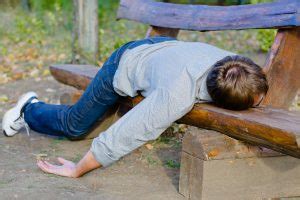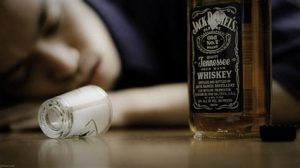It’s well known that if you drink too much alcohol you might blackout.
How many times have you had a lot to drink, and then couldn’t recall the night before? You know that when consuming alcohol you may face the dreaded hangover, but it can also lead to having a blackout.
That disconcerting, often frightening feeling where you can have gaps in your memory and can’t remember what you may have said or done. But what exactly happens when you have a blackout and what can you do to prevent it?
Not uncommon
 It’s not uncommon to have an isolated blackout when drinking. Around 50% of drinkers say they have had at least one in their lifetime. However, if you are suffering blackouts on a regular basis, it could be a sign you have an issue with alcohol addiction. It could even point to graver health concerns that suggest you should make an appointment with your GP.
It’s not uncommon to have an isolated blackout when drinking. Around 50% of drinkers say they have had at least one in their lifetime. However, if you are suffering blackouts on a regular basis, it could be a sign you have an issue with alcohol addiction. It could even point to graver health concerns that suggest you should make an appointment with your GP.
Blackouts generally occur when you drink to excess, although some people may be predisposed to having one even if they have not consumed as much.
Basically, you will blackout if your blood alcohol concentration (BAC), gets too high. Higher BAC levels increase the possibility of a blackout. But the level of blacking out differs in different people just as the rate of processing alcohol differs. You can’t really know how well your liver is functioning at a particular point.
Why can we not remember events?
You may also wonder why you cannot remember when you have a blackout. The fact is your brain loses its ability to make memories when you drink too much. Experts believe some areas of the brain develop a tolerance to alcohol but this does not include the Hippocampus, the part which stores memories. So the loss of memory about where you were and what you did will likely be permanent.
You may experience a type of short-term amnesia, but if you consume to excess over a period, it could have a lasting effect on your brain chemistry, impeding its functioning.
Why some people are more prone to blackouts could be down to how alcohol impacts brain processes. This is particularly relevant in the parts concerning attention, self-monitoring, and memory. The fact is, we are not all the same, and booze can affect some people’s brain chemistry differently to others.
Think before you take that other drink
Therefore, if you wish to avoid the often-unpleasant side effects, experts recommend  rethinking how much you have to drink, or possibly abstaining altogether, to avoid a blackout. Five drinks per 2 hours is considered binge drinking and can lead to a higher risk of blackouts. Try non-alcoholic alternatives – there are an increasing number available.
rethinking how much you have to drink, or possibly abstaining altogether, to avoid a blackout. Five drinks per 2 hours is considered binge drinking and can lead to a higher risk of blackouts. Try non-alcoholic alternatives – there are an increasing number available.
After all, isn’t it better to have a night you will not forget, rather than one you regret? Blackouts can lead to concern, shame and distress about things you cannot remember. That can’t be a pleasant end to what could have been be an enjoyable night out. If you need immediate help contact us.
Source: Blackouts when drinking


